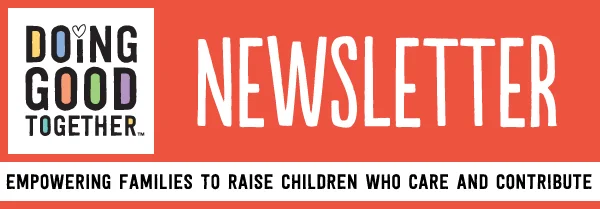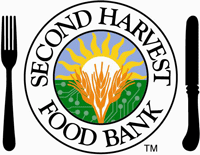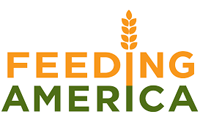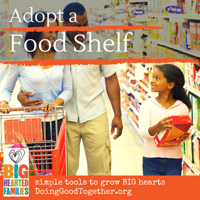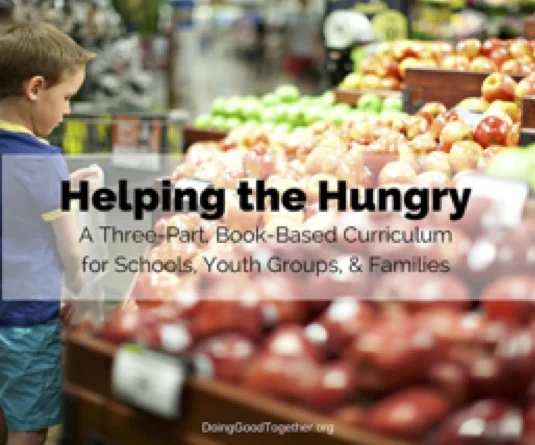MAKING A FOOD DRIVE REALLY COUNT
Try these tips for schools, faith groups, and families to fight hunger effectively.
With 1 in 7 people in the United States counting on food pantries for some of their nutrition, food drives can play a critical role in keeping shelves stocked for those in need. However, despite good intentions, too many of us respond to our school, business or faith group food drive by quickly scanning our kitchen for old canned goods to toss into the donation bin. I'd like to suggest a different approach. This new approach will assist local food banks more effectively, and also help your children learn about the issue of hunger, acquire empathy for those who struggle with food insecurity, and think about how they can continue to make a difference. Please read on!
-Jenny Friedman, Executive Director
MAKING A FOOD DRIVE REALLY COUNT
Make a Difference.....
- Gather good food. Go grocery shopping with your kids, and while you're there talk about the importance of good nutrition. Also explain the consequences of not getting enough of the right foods. To add some fun, turn your grocery visit into a scavenger hunt, trying to find an item or two to donate from each food group, or scouting the aisles for a food pantry's most needed items.
- Read. If you read only one book to get your children chatting about hunger in the U.S., make it Maddi's Fridge by Lois Brandt. Your family will be inspired to learn more -- and do more -- about local issues of hunger after hearing about Sofia's desire to help her friend Maddi.
- Visit. Drop off your donations at your local food pantry together - or go for a brief visit some other time. Take a tour, ask staff and volunteers about their work, and ask how else you can help out. This will make the food drive much more concrete for children.
- Write a letter. Many of us mistakenly believe that contacting our representatives makes little difference. But legislators care about what matters to voters. Handwritten letters (and drawings by younger children) urging your elected official to visit their local food bank can be powerful. Learn about anti-hunger advocacy and find contact information for your representatives at Feeding America.
- Give money. Donating money to anti-hunger organizations does two things. It enables them to buy more nutritious foods, and to buy the specific foods low-income families most want and need. So consider designating some of your charitable giving money to your local food pantry, in addition to donating food.
- Keep it going. After your drive ends, your children may want to keep working on food problems. Continue your support by adopting your local food pantry.
HELP KIDS UNDERSTAND HUNGER
Talk About It.....
As always, your conversations matter. If you want your children to take your family's focus on food and hunger seriously, help them imagine what hunger is like.
- Have you ever felt hungry for a long time? How does your body feel when you've missed a snack, or when a meal arrives on the table later than usual? Are you tired? Crabby? Do you have trouble thinking about other things?
- Everyone experiences hunger at some point, but what do you think would happen to your body and your feelings if you were hungry a lot?
- Why is it important to continue to donate food to our local food pantry and not just do it one time?
- What are other ways we can help those in our community who may be experiencing hunger?
Learn About It.....
Doing Good Together has created an innovative curriculum to teach young children about hunger and food insecurity. These lessons present a chance for some meaningful learning. And you'll find that they will also lead to more food donations. The packet includes hunger-themed children's books, kid-friendly instructions for explaining food insecurity, and service projects to make food collection more fun. Details are at doinggoodtogether.org/curriculum. Great for schools, faith communities, after-school programs, homeschoolers -- and individual families!
INSPIRATION
"The first component of social justice is adequate food for all mankind. Food is the moral right for all who are born into this world."
- Norman Borlaug, American biologist, humanitarian, and Nobel laureate


